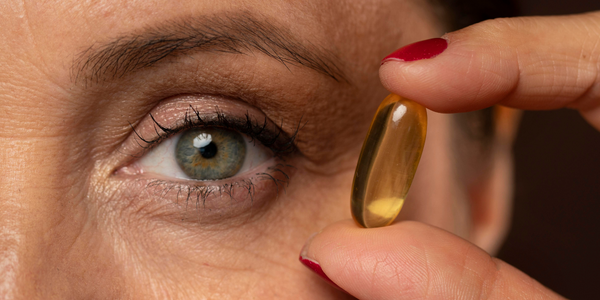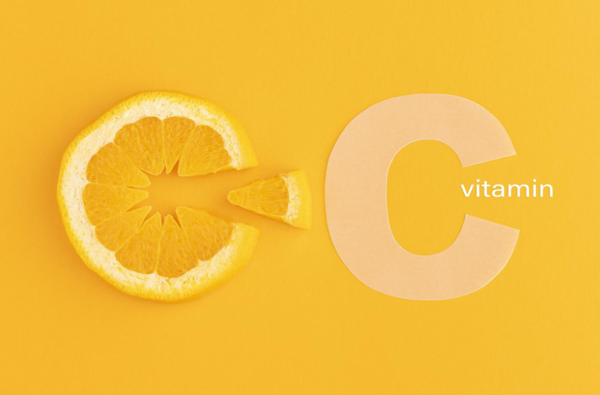Apple Cider Vinegar has become quite popular these days. And why shouldn’t it be? After all, ACV helps improve cardiovascular health, lose weight, and control blood sugar levels. But can just about anyone consume apple cider vinegar? Can age affect the consumption of apple cider vinegar intake?
Well, if you need answers to the above questions, read along. This blog will clear all your doubts. Also, in the end, you'll find two of the most reliable apple cider vinegar supplements in the market. So, go ahead and read along to know more about our apple cider vinegar and its variant.
What is apple cider vinegar?
Apple cider vinegar is basically vinegar made using fermented apple juice. It's used in chutneys, food preservatives, marinades, and salad dressings.
It is made by crushing fresh apples and squeezing out the juice. Once the juice is out, yeast and bacteria are added to start the alcoholic fermentation process that converts the sugar in the apple juice to alcohol.
The acetic acid-forming bacteria are then added to convert the alcohol into vinegar. This is where the sour taste in apple cider vinegar comes from.
What are the common benefits of apple cider vinegar?
Here are some of the most common benefits of apple cider vinegar:
1. Antimicrobial
ACV comes with antimicrobial properties, which is why it's been used for disinfecting and cleaning purposes. It's also believed that Hippocrates used to clean wounds using vinegar.
2. Good for Skin
ACV is considered a remedy for skin issues such as eczema and dry skin. Also, ACV can help restore the PH balance and improve the protective barrier of your skin.
3. Weight Loss
Several human studies suggest that ACV increases the feeling of fullness, which suppresses the urge to eat more. And when you eat less, you automatically lose weight.
4. Blood Pressure
Some studies suggest that ACV can help reduce blood pressure. And this can further help you prevent cardiovascular or heart issues.
Can Age Influence Your Apple Cider Vinegar Intake?
Babies shouldn't be allowed to ingest apple cider vinegar. Also, ACV's topical application is not recommended for them by any expert. On the contrary, older kids can daily consume a diluted solution of ACV.
It’s because undiluted solution can cause harm to the esophagus and can also affect the enamel leading to tooth decay.
Both young adults and older adults can consume apple cider vinegar. Furthermore, some experts recommend ACV for diabetes patients regularly. However, it should always be diluted enough to prevent any damage to your tooth enamel.
Your age does affect the consumption of apple cider vinegar. But the impact is minimal as both young kids and old adults can consume apple cider vinegar likewise. However, it's recommended that you take the necessary precautions. What precautions? Read along to find out.
Some Precautions to Take While Drinking Apple Cider Vinegar
Here are some precautions that you can take while drinking apple cider to avoid potentially harmful side effects.
1. Avoid Large Doses
Excess of anything is bad, including apple cider vinegar. So if you're new to consuming ACV, start with small doses and that too after consulting with your doctor.
By starting with small doses, you can determine whether or not ACV affects your health or stomach negatively. If it doesn't, you can slowly increase the dosage.
2. Brushing Teeth Right After Consumption
Brushing your teeth immediately after consuming ACV can scratch your tooth enamel. And this can lead to cavities and even tooth decay. So, make sure to wait for at least 30 minutes before brushing after consuming ACV.
3. Consuming ACV After Having Food
Consuming ACV on a full stomach can impact your digestion and may even upset your stomach. So, avoid having ACV right after having food. To maximize the health benefits, consume ACV on an empty stomach.
4. Always Dilute It
Always remember that apple cider vinegar is acidic in nature. And consuming it undiluted or less diluted can harm your esophagus and your tooth enamel. So, it's recommended that you dilute ACV properly before consumption.
With that said, let's talk about Wellbeing Nutrition’s reliable apple cider vinegar products and what sets them apart from their counterparts.
Apple Cider Vinegar
Apple Cider Vinegar from Wellbeing Nutrition is a product that you can rely upon. It's made from fresh Himalayan red and golden apples and comes with the below benefits:
● Prevents bloating and gas
● Enables healthy blood sugar levels
● Regulates pH balance
● Improves skin
● Enhances heart health
● Relieves allergies
● Detoxifies your body
● Enhances immunity
● Relieves sore throat
● Enhances metabolism
You need to mix 15 ml of ACV in 1 cup of warm water for the above benefits. Or you can even add ACV to your salad or chutney.
Apple Cider Vinegar with Amla and Turmeric
Apple Cider Vinegar with Amla and Turmeric is another product from Wellbeing Nutrition. This is a fortified version of ACV, with an added goodness of immunity-boosting spices like...
● Amla
● Turmeric
● Cinnamon
● Black Pepper
Wrapping Up
Age isn't so much a constraint when it comes to consuming apple cider vinegar. As long as it’s diluted, anyone (except kids below the age of 8) can have it. However, it's always recommended to take precautions and consult a doctor before making ACV a part of your daily routine. You can also go for reliable products such as Apple Cider Vinegar or/and Apple Cider Vinegar with Amla and Turmeric by Wellbeing Nutrition, which are organic, unpasteurized, raw, unfiltered, with 2x the ‘Mother’.
References
● Akanksha, Singh & Mishra, Sunita. (2017). STUDY ABOUT THE NUTRITIONAL AND MEDICINAL PROPERTIES OF APPLE CIDER VINEGAR ARTICLE INFO ABSTRACT. 8. https://bit.ly/314yMBU
● Yagnik, D., Serafin, V., & J Shah, A. (2018). Antimicrobial activity of apple cider vinegar against Escherichia coli, Staphylococcus aureus and Candida albicans; downregulating cytokine and microbial protein expression. Scientific reports, 8(1), 1732. https://doi.org/10.1038/s41598-017-18618-x
● Lee, N. R., Lee, H. J., Yoon, N. Y., Kim, D., Jung, M., & Choi, E. H. (2016). Application of Topical Acids Improves Atopic Dermatitis in Murine Model by Enhancement of Skin Barrier Functions Regardless of the Origin of Acids. Annals of dermatology, 28(6), 690–696. https://doi.org/10.5021/ad.2016.28.6.690
● Na, L., Chu, X., Jiang, S., Li, C., Li, G., He, Y., Liu, Y., Li, Y., & Sun, C. (2016). Vinegar decreases blood pressure by down-regulating AT1R expression via the AMPK/PGC-1α/PPARγ pathway in spontaneously hypertensive rats. European journal of nutrition, 55(3), 1245–1253. https://doi.org/10.1007/s00394-015-0937-7
● Siddiqui, F. J., Assam, P. N., de Souza, N. N., Sultana, R., Dalan, R., & Chan, E. S. (2018). Diabetes Control: Is Vinegar a Promising Candidate to Help Achieve Targets?. Journal of evidence-based integrative medicine, 23, 2156587217753004. https://doi.org/10.1177/2156587217753004
● Willershausen, I., Weyer, V., Schulte, D., Lampe, F., Buhre, S., & Willershausen, B. (2014). In vitro study on dental erosion caused by different vinegar varieties using an electron microprobe. Clinical laboratory, 60(5), 783–790. https://doi.org/10.7754/clin.lab.2013.130528

























